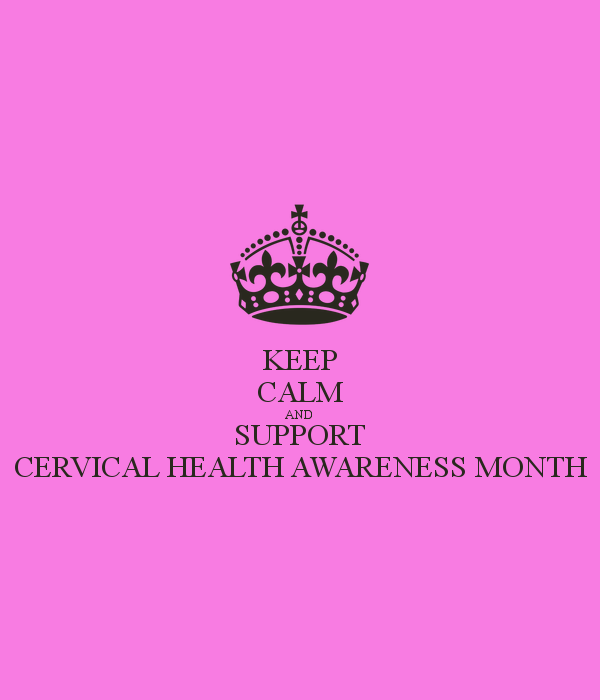This month is Cervical Health Awareness Month. We have produced the image above and it would be great if you could like and share to show your support for raising awareness of cervical cancer.
Each year in the U.S. more than 12,000 women are diagnosed with cervical cancer, and more than 4,000 die as a result. Cervical cancer is a profound health equity issue: in both the U.S. and abroad the disease is linked strongly with poverty and lack of access to medical care, a fact all the more frustrating because screening tests (Pap tests and, when appropriate, HPV tests) and vaccines exist that give us the capacity to essentially eliminate the disease.
Access to these life-saving tools is crucial, and ASHA/NCCC President Lynn Barclay says we have programs in place to help. “Provisions of the Patient Protection and Affordable Care Act (ACA) require insurance plans to cover cervical cancer screening tests at zero cost to women,” she says. Barclay also points out that HPV vaccines, which are available for both males and females, are covered by the vast majority of health insurance plans. Additionally, the Vaccines for Children program provides vaccines for eligible children through age 18, including the uninsured, under-insured, and Native Americans and Alaska Natives. “Ensuring greater access to these tests and vaccines is not only the right thing to do, but also a wise, efficient way to spend our health care dollars,” she says.
Barclay explains that providing access to medical care is only part of the job, though, and much work remains to be done with educating both the public and health professionals alike. She says it’s important to have ongoing sexual health conversations with our healthcare team, our partner, and our kids, but these talks often get side-tracked: “Regardless of the exact topic, sexual health conversations are usually rushed through or avoided altogether. We’re often just too embarrassed to even begin these talks, much less have them effectively. One place to start is with ASHA’s guide, Ten Questions to Ask Your Healthcare Provider about Sexual Health.”
Barclay says at its extreme, our lack of comfort with these topics even results in women avoiding gynecologic care due to a sense of shame. “There’s no single, simple solution to ending cervical cancer but it’s clear it involves more than just quality health care. When it comes to sexual and reproductive health we should be comfortable in our own skin, and have the confidence to seek the care and support we need. I urge every woman to talk with her healthcare provider about Pap and HPV tests. I also encourage everyone, men and women alike, to talk to the women in their lives – wives, girlfriends, mothers, sisters, nieces, best friends- and tell them to take care of themselves, safe-guard their health, and have a conversation with their doctor or nurse to see which tests are recommended for them.”
